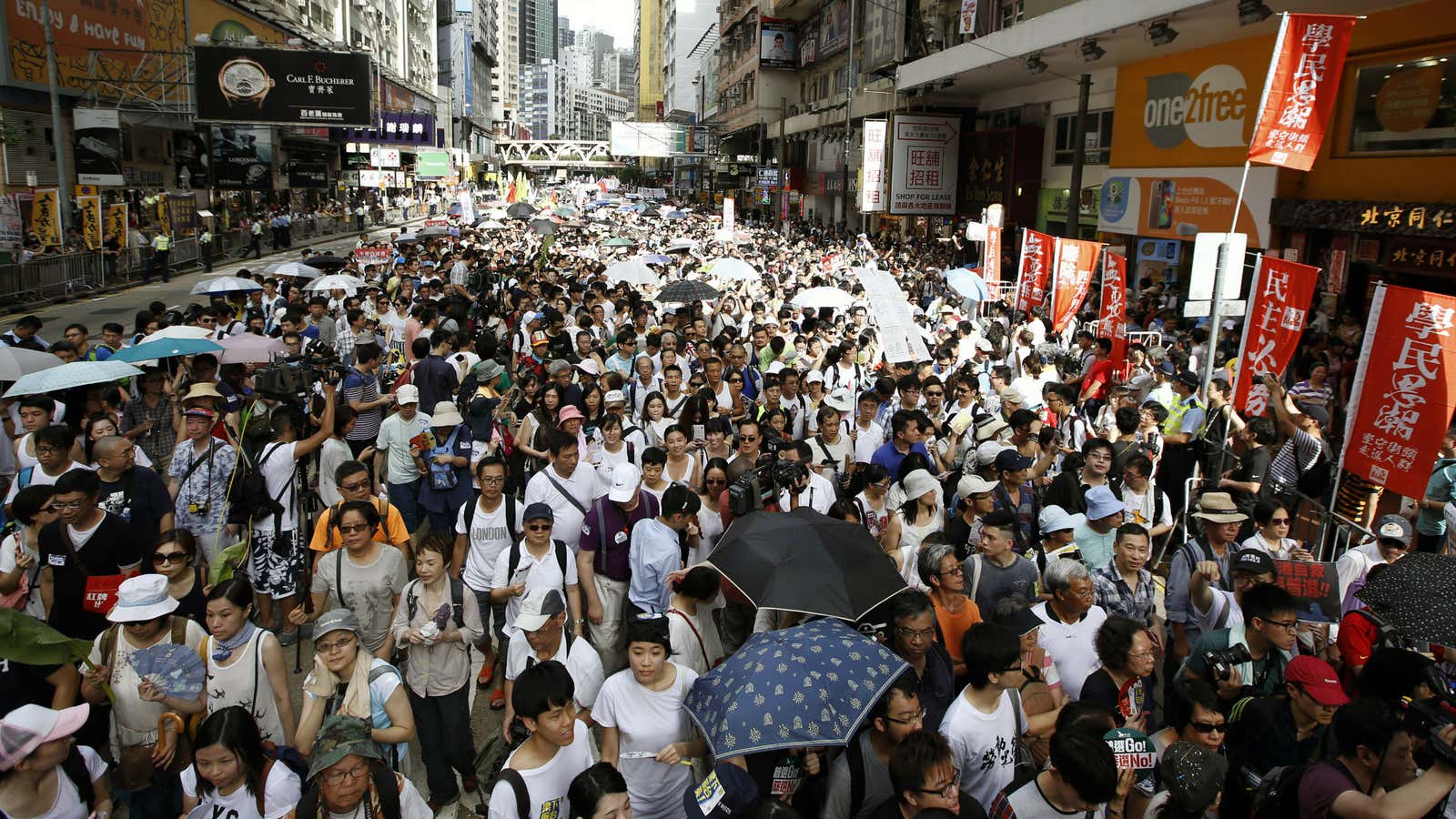Hong Kong’s massive pro-democracy protests at the beginning of July were the largest in a decade, and an online poll about how the city’s next leader should be chosen attracted more than 10% of the city’s population. But these participants don’t represent the “mainstream,” the city’s top leaders said in separate reports to the Chinese government today.
The two reports, which officially begin a long process of electoral reform ahead of the 2017 Hong Kong elections, both state that a hand-picked committee, rather than individual voters, should have the power to nominate candidates for the city’s next leader. Protestors and activists have been agitating for candidates to be chosen by voters directly, because they believe the committee will otherwise only allow pro-Beijing candidates to make the electoral ballot.
Both reports, compiled by the chief secretary and chief executive after five months of research, state that “mainstream opinion” in Hong Kong is that a nominating committee should have the power to elect the country’s next leader, and that the leader should be someone who “loves” both the country and Hong Kong. The conditions of Hong Kong’s handover from Britain to China in 1997 include a promise that citizens will choose their top politician through “universal suffrage” without defining what, exactly, that looks like.
Neither report mentions the July 1 protests that attracted as many as 500,000 people, or the online poll that registered 800,000 votes. The reports are likely to spur democracy activists—who are already planning a sit-in designed to close down central Hong Kong in coming months—to plan further protests.
